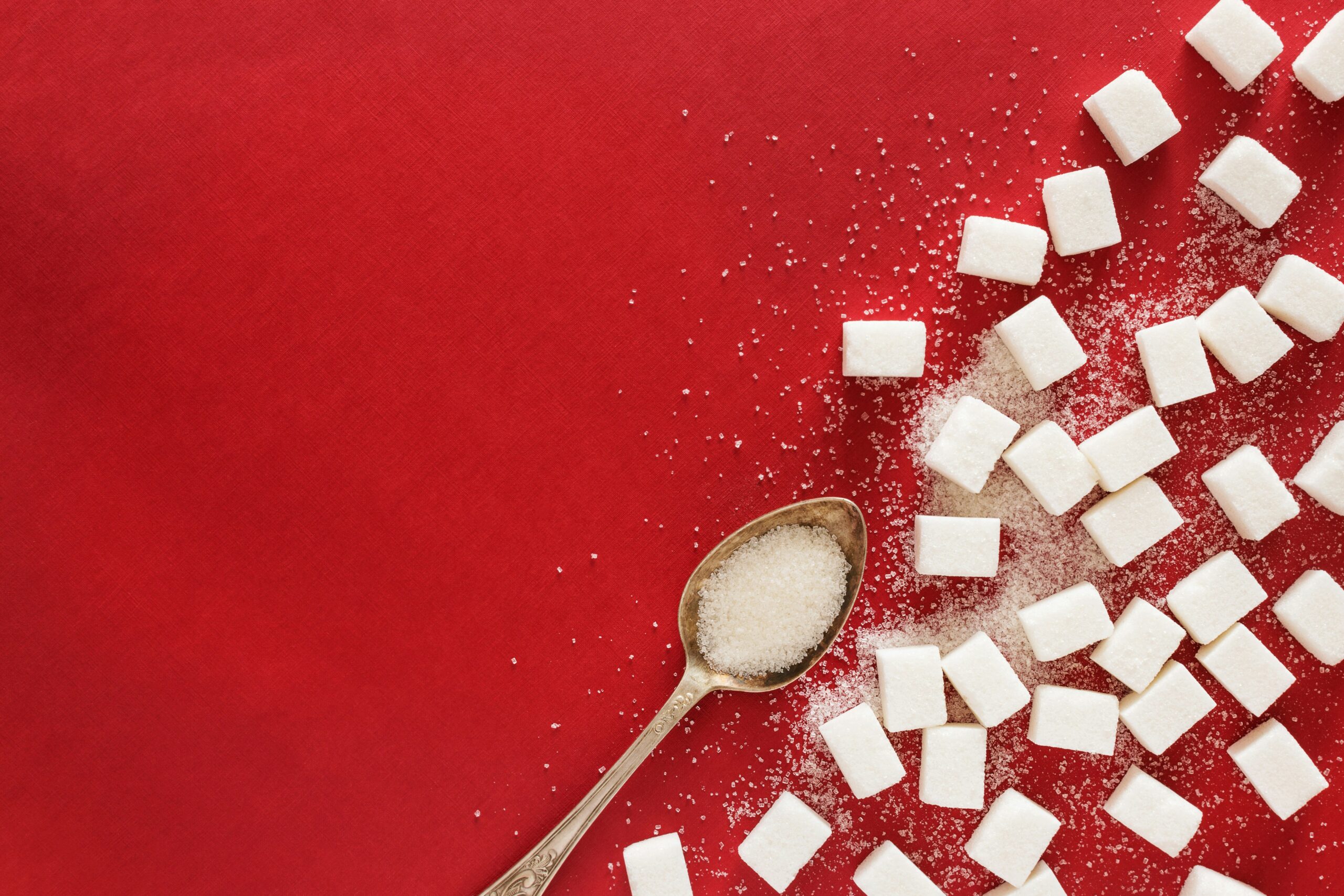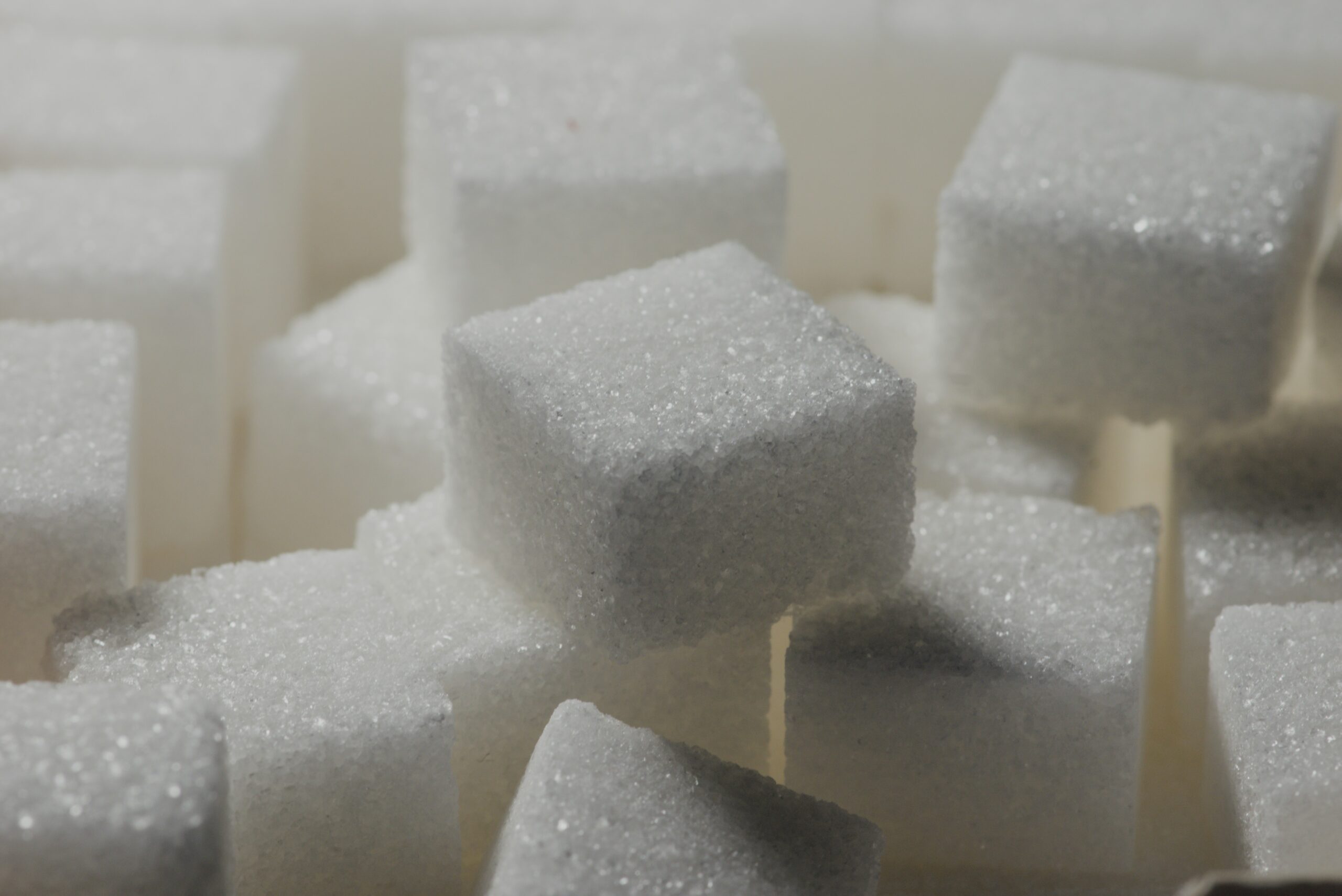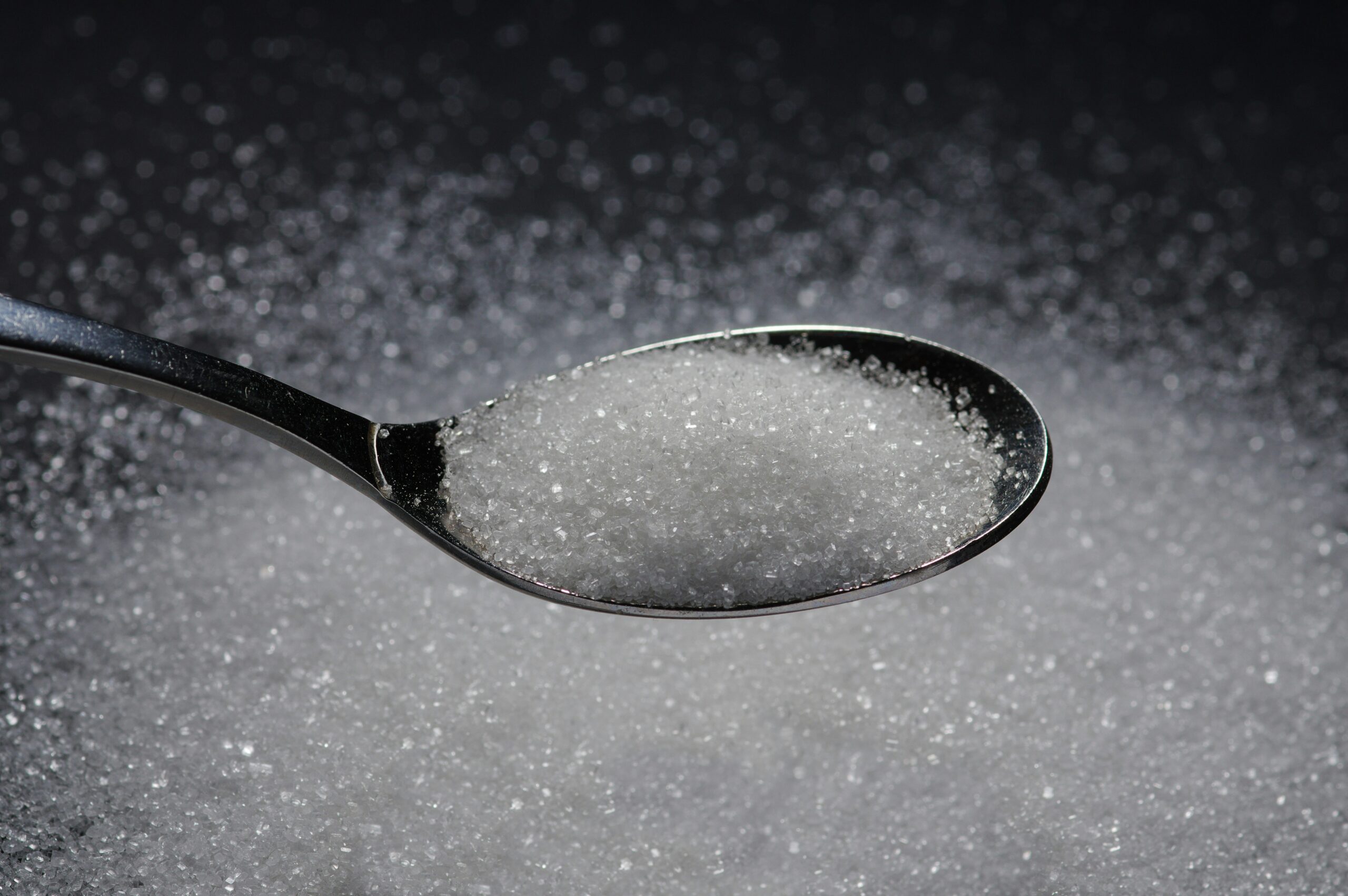Xylitol is a type of sweetener that is a sugar substitute. It resembles sugar in appearance and taste but is produced from other plants and has a different ratio of nutrients. From a chemical perspective, xylitol is a five-carbon sugar alcohol. The sweetener occurs naturally in the fruits, vegetables, and plants from which it is extracted.
Depending on the region, xylitol can be extracted from the bark of birch, corn, or other plants. It belongs to the group of polyols, which are the sweetest substances. Recently, when more attention has been paid to the harmfulness of sucrose or sugar, sweeteners such as xylitol have gained popularity.
Xylitol stands out from sugar in terms of its health properties, for which it is prized. Studies show that xylitol positively affects dental health, so the substance is often used in toothpaste and chewing gum. However, when used as a sugar substitute, xylitol can have a better and healthier effect on the human body. Sweeteners used instead of sucrose are helpful for diabetics, among others. However, using this chemical can also be associated with side effects, especially when consumed excessively. Are sweeteners safe? Learn more about the pros and cons of xylitol.

Xylitol is a compound that can be added to food as a plant-based sweetener. The substance belongs to the group of polyols![]() or sugar alcohols. In recent years, polyols have been frequently used to produce food, medicines, and oral hygiene products. Xylitol administered orally is absorbed and converted to xylose
or sugar alcohols. In recent years, polyols have been frequently used to produce food, medicines, and oral hygiene products. Xylitol administered orally is absorbed and converted to xylose![]() in the liver. Half of the xylitol is absorbed, while the rest continues to pass through the digestive system. This specific digestion process gives xylitol its valuable properties. In addition, xylitol can be used in other ways to extend its effects to other areas. The health benefits of xylitol include:
in the liver. Half of the xylitol is absorbed, while the rest continues to pass through the digestive system. This specific digestion process gives xylitol its valuable properties. In addition, xylitol can be used in other ways to extend its effects to other areas. The health benefits of xylitol include:
Xylitol is mainly known for its health properties for teeth and gums. Using polyol on the surface of the teeth reduces the possibility of tooth decay and other dental diseases. Xylitol reduces the growth of bacteria such as Streptococcus sangui![]() and Streptococcus mutans
and Streptococcus mutans![]() . The substance is therefore used preventively, as it can already reduce pathogen levels at very early stages. Xylitol in toothpaste can effectively replace fluoride. In addition, chewing gums with xylitol are produced. They can be used as a supplement to daily oral hygiene. Chewing xylitol gum increases saliva production, prevents plaque build-up, reduces bacterial flora, and remineralizes enamel.
. The substance is therefore used preventively, as it can already reduce pathogen levels at very early stages. Xylitol in toothpaste can effectively replace fluoride. In addition, chewing gums with xylitol are produced. They can be used as a supplement to daily oral hygiene. Chewing xylitol gum increases saliva production, prevents plaque build-up, reduces bacterial flora, and remineralizes enamel.

Xylitol is also used in cosmetics. The substance improves the skin's barrier function. The process involves enhancing lipids' fluidity in the skin's granular layer. As a result, the restoration of the epidermal barrier is accelerated so that the skin does not lose moisture due to irritation and is less susceptible to external agents. In addition, xylitol can inhibit the growth of pathogens, protecting the skin surface. A solution of water with xylitol reduces the development of various bacteria. Also, the oral intake of xylitol can influence collagen![]() growth, resulting in better skin conditions.
growth, resulting in better skin conditions.
Diet has a significant impact on bone mineral composition and strength. Studies have noted that supplementing the diet with xylitol can influence higher bone density and has shown a protective effect against imbalances in bone metabolism. The process of xylitol's effect on bones is that the oral administration of the substance leads to the production of fatty acids and a lowering of the pH of digested food. As a result, xylitol improves the solubility and absorption of minerals such as phosphorus![]() and calcium
and calcium![]() , which are essential for bone health.
, which are essential for bone health.
Xylitol is a carbohydrate that enters the colon after ingestion. In this organ, it is fermented by microflora. The increased concentration of the compound in the gastrointestinal tract may be beneficial for those suffering from constipation, as xylitol leads to increased osmotic pressure. It then contributes to water retention in the digestive tract, showing a laxative effect![]() . Studies have observed that chewing gum with xylitol several times a day can influence the normalization of intestinal function. In treating constipation, this is a beneficial property, but excess xylitol can cause diarrhea in a healthy person.
. Studies have observed that chewing gum with xylitol several times a day can influence the normalization of intestinal function. In treating constipation, this is a beneficial property, but excess xylitol can cause diarrhea in a healthy person.
The intestinal microflora can utilize half of the xylitol that enters the large intestine. Xylitol is, therefore, recognized as a natural prebiotic that influences butyric acid![]() production through fermentation. Butyric acid is a compound that benefits colon health, as it provides energy and has regulatory functions. Xylitol, therefore, has a beneficial effect on the digestive system, as the amount of gram-negative bacteria in the body is reduced through consumption of the substance. In addition, the polyol can inhibit the growth of Candida yeast, suggesting that it has antifungal effects.
production through fermentation. Butyric acid is a compound that benefits colon health, as it provides energy and has regulatory functions. Xylitol, therefore, has a beneficial effect on the digestive system, as the amount of gram-negative bacteria in the body is reduced through consumption of the substance. In addition, the polyol can inhibit the growth of Candida yeast, suggesting that it has antifungal effects.

Thanks to its prebiotic properties, xylitol can also support the immune system. The chemical stimulates innate and acquired immunity by influencing the metabolism of immune cells. Its anti-inflammatory effect![]() helps to inhibit the growth of pathogens. The properties of xylitol show an effect mainly against bacterial infectious agents. However, research results are inconclusive in the case of viruses. Therefore, a more thorough analysis of the impact of xylitol on viral infections is needed.
helps to inhibit the growth of pathogens. The properties of xylitol show an effect mainly against bacterial infectious agents. However, research results are inconclusive in the case of viruses. Therefore, a more thorough analysis of the impact of xylitol on viral infections is needed.
Thanks to its anti-inflammatory properties, xylitol can also treat respiratory tract infections. This is because xylitol protects the nose and sinuses' skin and mucous membranes. The chemical compound is then used in the diet or as an ingredient in topical sprays or solutions. Xylitol can inhibit the growth of streptococci![]() , which causes respiratory infections. Nasal preparations containing xylitol can also reduce the symptoms of allergic rhinitis
, which causes respiratory infections. Nasal preparations containing xylitol can also reduce the symptoms of allergic rhinitis![]() . Xylitol can also be beneficial in the treatment of sinusitis and otitis media. The antimicrobial action of the substance is essential in these cases, significantly inhibiting the growth of various types of pathogens.
. Xylitol can also be beneficial in the treatment of sinusitis and otitis media. The antimicrobial action of the substance is essential in these cases, significantly inhibiting the growth of various types of pathogens.
Xylitol can have a beneficial effect on weight control, which is essential for problems such as obesity and its complications. However, weight loss effects are seen when sucrose is replaced by xylitol. Therefore, reducing sugar is one of the most critical factors, but it should be borne in mind that the sweetener has a lower calorific value. Xylitol shows the same sweet taste intensity as sugar and can easily replace this unhealthy ingredient. Another advantage and impact of xylitol on weight control is that it increases the feeling of satiety![]() . Thus, the presence of this ingredient in the diet reduces the feeling of hunger for longer.
. Thus, the presence of this ingredient in the diet reduces the feeling of hunger for longer.

Due to its properties, xylitol has a positive effect on metabolic health. Despite its sweet taste, the polyol does not cause a sudden rise in blood glucose![]() like sugar or other sweeteners. The glycaemic index of xylitol is shallow compared to the glycaemic index of glucose. Because of these benefits, xylitol is readily used by diabetic patients. There are also suspicions that xylitol may reduce cholesterol levels, but more research is needed.
like sugar or other sweeteners. The glycaemic index of xylitol is shallow compared to the glycaemic index of glucose. Because of these benefits, xylitol is readily used by diabetic patients. There are also suspicions that xylitol may reduce cholesterol levels, but more research is needed.
Xylitol is a crystalline substance that is safe and generally well tolerated when consumed in the prescribed amounts. Analyzing different scientific sources, the recommendations for xylitol dosage vary. Depending on body weight and other factors, xylitol may affect the body differently. Some experts point to a threshold of 30 g![]() of xylitol as a single oral dose, describing that this amount of substance will not cause any side effects for an adult.
of xylitol as a single oral dose, describing that this amount of substance will not cause any side effects for an adult.
Other authors, pointing to the daily consumption of xylitol, found that up to 70 g/day![]() of xylitol for adults is a safe threshold that will not cause side effects due to good gastrointestinal tolerance. However, the tolerance of xylitol is an individual issue, and the type of diet can also influence it. It is, therefore, advisable to observe the body's reaction to doses of xylitol and, preferably, to consult a doctor beforehand.
of xylitol for adults is a safe threshold that will not cause side effects due to good gastrointestinal tolerance. However, the tolerance of xylitol is an individual issue, and the type of diet can also influence it. It is, therefore, advisable to observe the body's reaction to doses of xylitol and, preferably, to consult a doctor beforehand.

As for calories, studies confirm that xylitol has a low glycemic index and a lower caloric value than sucrose. The caloric value of the polyol is 2.4 kcal/g![]() , indicating a moderate caloric level. However, this is very beneficial because xylitol has the same flavor intensity as sugar.
, indicating a moderate caloric level. However, this is very beneficial because xylitol has the same flavor intensity as sugar.
Xylitol is generally considered a safe and well-tolerated substance that can be consumed in the diet. Due to its beneficial properties, it is used as a sugar substitute in the pharmaceutical and cosmetic industries. When applied to the skin, xylitol should not cause any side effects. Xylitol is also considered safe for pregnant women, although we recommend that you consult your doctor before adding this new substance to your diet. When xylitol is ingested and digested by the digestive system, higher doses of the substance can cause various symptoms. The most common side effects of xylitol include:

Excessive consumption of xylitol can cause digestive symptoms, including bloating. The condition is described as an enlargement of the abdominal girth, and the accumulation of too much gas in the intestine is considered the cause. The accumulation of gases in the body causes discomfort and a feeling of bloating. People unaccustomed to consuming polyols are particularly prone to gastrointestinal symptoms and may experience discomfort after just a single dose. In addition to bloating, nausea![]() and colic
and colic![]() sometimes occur.
sometimes occur.
Large doses of xylitol consumed orally have laxative properties. Therefore, a side effect of this sweetener can be loose stools and increased frequency of bowel movements. Xylitol causes diarrhea due to its slow absorption. Once xylitol intake is reduced, the gastrointestinal symptoms resolve spontaneously. Therefore, the side effects are usually temporary and do not cause permanent damage. However, excessive and prolonged consumption of xylitol can lead to irritable bowel syndrome![]() . Due to these properties, xylitol is used to treat constipation, but for people who are sensitive and prone to diarrhea, it should not be used in large quantities.
. Due to these properties, xylitol is used to treat constipation, but for people who are sensitive and prone to diarrhea, it should not be used in large quantities.
Modifying diets and limiting sucrose for health purposes makes people turn more often to natural sweeteners, healthier than sugar in various ways. Xylitol is one of many sugar alcohols that are used to sweeten food. Some polyols also do not raise blood sugar levels and can be suitable sugar substitutes. Other sweeteners that fall into the sugar alcohol group include:

One of the sugar alcohols is sorbitol or six-carbon alditol. The substance naturally occurs in peaches, cherries, and apples. Sorbitol can also be found in some vegetables. This type of sweetener is less sweet than xylitol and sugar but has high water solubility and a lower glycemic index. In addition, it has a non-cariogenic effect, which is especially beneficial for people with diabetes.
Maltitol is another frequently used sweetener in polyol-containing products. It is a disaccharide sugar alcohol that has thickening and sweetening properties. The intensity of the sweet taste is the same as that of sugar or xylitol. Maltitol is also non-cariogenic with the same caloric content. However, it has a higher glycemic index compared to xylitol.
Erythritol is a popular sweetener, just like xylitol. It is a four-carbon polyol that occurs naturally. It is found in many plants, such as mushrooms, seaweed, pears, and grapes. It is also used in the production of fermented foods. However, Erythritol is calorie-free and has a lower sweetness level than xylitol or sugar. Erythritol has the lowest glycemic index of all sugar alcohols.
Xylitol is a sweetener belonging to the sugar alcohols group. It is extracted from plants and resembles sugar in structure and taste after production processing. However, xylitol has several benefits and properties, so it is sometimes used as a healthier substitute for sucrose. Xylitol is known for protecting teeth from tooth decay but has other advantages. Its health effects extend to the digestive system, bones, and skin.
Xylitol is generally considered a safe product, but in excess, it can cause gastrointestinal symptoms. Therefore, it is recommended not to exceed the dosage of xylitol. Other types of sugar alcohols exhibit different properties and characteristics. Before introducing new products such as sweeteners into your diet, it is a good idea to consult a nutritionist or other specialist first.